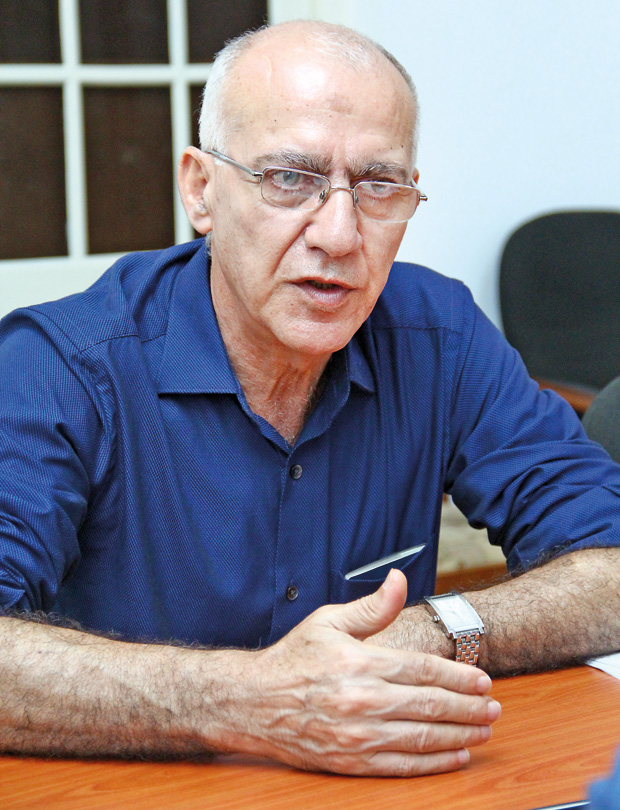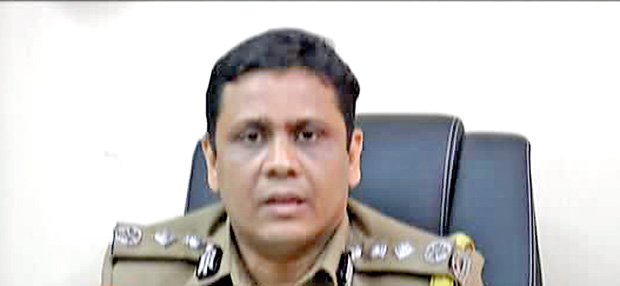Reply To:
Name - Reply Comment
Last Updated : 2024-04-24 00:50:00
 necessities. The WHO Constitution enshrines that the highest attainable standard of health as a fundamental right of every human being. Deprivation of freedom in the form of imprisonment does not imply that health care should be denied. Dr. Naim Ismail attached to the International Committee of the Red Cross (ICRC) and who has been working in Sri Lanka for nearly two years as a detention doctor and project manager firmly believes that humane treatment for prisoners include access to health care which is at the same level of health care available for the people in the community who are not detained. Thushara Upuldeniya, the Prisons Media Spokesman said that as Sri Lanka was a developing country there were difficulties in maintaining international standards. “But we provide all facilities so that the health of inmates is not affected. Prison health is under the purview of the Health Ministry. Therefore all facilities found in a normal hospital are provided to the prison hospital,” he added.
necessities. The WHO Constitution enshrines that the highest attainable standard of health as a fundamental right of every human being. Deprivation of freedom in the form of imprisonment does not imply that health care should be denied. Dr. Naim Ismail attached to the International Committee of the Red Cross (ICRC) and who has been working in Sri Lanka for nearly two years as a detention doctor and project manager firmly believes that humane treatment for prisoners include access to health care which is at the same level of health care available for the people in the community who are not detained. Thushara Upuldeniya, the Prisons Media Spokesman said that as Sri Lanka was a developing country there were difficulties in maintaining international standards. “But we provide all facilities so that the health of inmates is not affected. Prison health is under the purview of the Health Ministry. Therefore all facilities found in a normal hospital are provided to the prison hospital,” he added. 
Stressing on the importance of prison health care Dr.Ismail said that it was important as a human rights, legal, public health and moral issue. Focusing on public health he noted that it was important to ensure that inmates detained by the government were not exposed to higher risks because of their detention. “People who are detained lose their freedom and are not able to take care of themselves, so the state has to take care of them. In prisons people are at a risk of many illnesses. Eventually they will go to the community. There are also visits by family members and they are in contact with the staff, guards and doctors in the prison. So the spread of disease among prisoners is not only bad for prisoners themselves but also the whole country. Health in the prison is important for the health of the nation,” he said.
Dr.Ismail has been visiting places of detention in Sri Lanka to observe their health conditions and discuss ways of improving their condition with the relevant authorities. Pointing out weaknesses in our health services he said the infrastructure was very poor as the prisons were old. “This makes it difficult to have good sanitation and it affects health. You don’t see well-equipped consultation rooms inside prisons. In the Mahara prison the ICRC supported the government to construct three new consultation rooms and one space for a basic laboratory. They used to have only one consultation room which made it very difficult for doctors to do their job effectively. Now they are able to treat their patients and attend to their needs as soon as possible without waiting in long lines. There will not be overcrowded clinics, where three or four patients talk to the doctor at the same time, and where patients cannot talk about confidential needs,” he said adding that in the Colombo remand prison two consultation rooms were complete and consultation rooms in the Outpatients’ Departemt (OPD) of the prison hospital was being refurbished.
Speaking about sanitation Dr.Ismail said that it was important to note whether inmates had access to toilets all day long, whether the toilets functioned and can be flushed all the time. “Sometimes there are toilets but if the inmates are locked during the night, and have no access, then they are useless.”The Prisons Media Spokesman added that Prisoners have access to toilets all day and that there are toilets in the cell and in premises.
Dr. Ismail further pointed out that health information was not collected effectively to be analyzed and used in making decisions. “Health information can be collected in a better way, analyzed and used by the decision makers of the Ministry of health to prioritize health issues, identify the needs and provide resources,” he said adding that when authorities were not aware of the needs action taken may or may not address the actual issue. “Proper action requires information. Well informed decisions are better than non-informed decisions,” he added.
However Upuldeniya stated that there was no issue in maintaining health records. “Doctors of the prison hospital maintain health records. There is no issue here. When it comes to diseases such as Tuberculosis health records are maintained even after the prisoners are released,” he noted.
Speaking about nutrition Dr.Ismail said that adequate food with sufficient amount of calories including all the elements of food should be provided. “If they are working inside prisons they should be getting more calories. If they are sick they should be given proper food that is prescribed by the doctor,” he said.
Upuldeniya said that prison authorities were not allowed to provide food based on their choice, and should obey the standing orders of the Prison Department which stipulate the types of food that should be provided. “We can’t change these. The person in charge of sections should be satisfied by what is being provided. Then there are PHIs to inspect the quality of the food. There are also independent bodies such as the Prison welfare Association and the Prison Visitors committee appointed by the Minister, to report on any issue they come across,” he stressed.
Dr.Ismail said that in most countries people were more sick in prisons than in the community due to mental health problems, and infections such as Tuberculosis and scabies.
“When they come to the prison they become more sick because of overcrowding and because there are a lot of sick people already. They are deprived of freedom and they don’t have access to good food or exercise,” he said. Dr. Ismail said that each prison should have a doctor or nurse visiting or resident in the prison to identify those who are sick and provide them with treatment. “Every prisoner must get a health screening during the course of the first 24hrs after admission to identify any kind of illnesses, injuries, mental health problems, or drug abuse problems and to prescribe treatment accordingly,” he added.
In Sri Lanka the responsibility of providing doctors falls under the purview of the Ministry of Health. Dr. Priyantha Athapattu, the Acting Director of Prison health care services and the Director of Medical services said that prison doctors are required to screen prisoners though it did not take place to an optimum level. However he noted that there was a pilot project underway to cater to this problem.
Prison overcrowding is an acute problem that affects our prison system. The Welikada prison was proposed to be shifted last year to address the issue of overcrowding. “Overcrowding is a problem worldwide and it is always not a good news for health. It is very difficult to protect and prevent illnesses. If you have ten people in one room in your home, it’s not going to be very healthy. If someone gets sick everyone gets sick. It is the same in prisons,” Dr. Ismail explained.
Raising health concerns related to overcrowding Dr. Ismail said that prisoners’ mental health would also be affected.
“Violence is more. If you have one doctor for thousand detainees then it’s not good. Access to toilets, water, food and everything becomes more difficult. Security also becomes tough,” he added.
 Thushara Upuldeniya, the Prisons Media Spokesman
Thushara Upuldeniya, the Prisons Media SpokesmanSpeaking about mental health Dr. Ismail said that in many instances, in place of being admitted to hospitals the mentally sick were found in prisons. “Even if you are healthy your mental health will suffer. If your mental health is already poor prisons is the worse place to be,” he said.
Suggesting recommendations to improve the mental health of detainees he said that they should be involved in meaningful activities which could be either entertainment, sport, art, work, productions, or going to the outside yard instead of sitting in the cell all day. He added that it was also important to treat prisoners humanely, and not humiliate them. “It is important to ensure that they have access to health care, food, air, recreational activities, which all contribute towards mental health.”
The Prisons Media Spokesperson said that there were recreational activities in all prisons, which prisoners had access to. He explained, however, that the recreational activities depended on whether the inmates were high security or low security detainees and also on the period they were to be detained for.
Dr. Athapattu said that the Ministry of Health with the support of the National Institute of Mental Health has appointed a consultant to visit the Welikada prison at least two or three days a month, while Medical Officers of Mental Health have been requested to visit prisons at least once a week in other districts.
The United Nations Rules for the Treatment of Women Prisoners and Non-custodial Measures for Women Offenders (‘the Bangkok Rules’) were adopted by the UN General Assembly in December 2010. According to Dr. Ismail they provide guidelines for the treatment and needs of women and their accompanying children. “Most of the prisons are designed for men, and not women. So when women are in the prison their needs are sometimes not addressed. Providing sanitation material for women is an example,” he said.
Speaking about pregnant inmates he said that their needs should be adequately addressed as specified in the Bangkok rules. “ A pregnant woman needs more calories and food. They need more access to health care. In the first trimester they need access to a gynaecologist, who should be a woman and not a man, once a month. In the last couple of months a gynaecologist should examine them every two weeks. When the time of delivery is known they should be sent to the hospital. No baby should be delivered in prisons,” he said. When asked about how pregnant women delivered their babies Upuldeniya said that though they were under the surveillance of prison officials, they were taken to government hospitals, so that they could obtain equal health facilities available for any citizen. Further, Dr. Athapattu said that there were national guidelines put forth by the Family Health Bureau of the Ministry of Health which are followed in prisons. “Usually we give the basic recommendations. If the recommendation of a specialist is required a request can be made by the Chief Medical Officer to the prison health department to take the pregnant woman for specialist treatment,” he said. Dr. Ismail explained that once the baby is delivered and if the family decided that the baby should be with the mother, the government was in obligation to provide everything needed for the baby. “Although the baby is not a prisoner, they should provide everything including milk, food, vaccination and clothing,” he added. According to Upuldeniya children until the age of five were allowed to be with the mother after court approval is obtained. He also said that there were day care centres for accompanying children in prisons.
Stressing on the responsibility of doctors to be very respectful and strictly observe medical ethics Dr.Ismail said that though outside patients had the option of consulting any doctor, there was no such choice available to prisoners. “If the patient(prisoner) stops trusting this doctor he has no other choice,” he said. Dr. Athapattu, stressing that health is a human right said that doctors should not differentiate between prisoners and outside patients, but administer treatment that can be provided within the prison system. Speaking about the adequacy of doctors he said that there was an issue at the Welikada prison as the doctors have been transferred following certain events. He also pointed out that the Department of Prisons was responsible to supply nurses. “It’s a joint responsibility of the Ministry of Health and Ministry of Prison Reforms to provide medical services. Therefore we try to provide nurses who are willing to work there. But the provision of nursing officers totally lies with the Department of Prisons,” he added.
Prison health care is provided by the Ministry of Health, Nutrition and Indigenous Medicine. Praising the universal health insurance available in Sri Lanka, Dr. Ismail said it was a great strength of Sri Lanka that prison health care is covered free of charge by the universal health insurance. “They are entitled by the law to health care as any citizen. So the law is on their side. It is not like this in other countries,” he said.
Dr. Ismail said that in an ideal situation every prison should be well equipped and staffed with doctors and nurses. “Based on the population of the prison this could be part time or full time, one day per week, every day or two to three doctors per day. Ideally each prisoner should have easy access to the prison clinic when they fall sick. There should be an initial health screening of all inmates at admission within 24hrs,” he added. He added that the prison doctors should be able to refer a prisoner to an outside hospital if the available resources were not sufficient. “This should be organized and managed in collaboration with the security staff who would escort the prisoners. Ideally medicine should be provided free of charge,” he said.

Add comment
Comments will be edited (grammar, spelling and slang) and authorized at the discretion of Daily Mirror online. The website also has the right not to publish selected comments.
Reply To:
Name - Reply Comment
US authorities are currently reviewing the manifest of every cargo aboard MV
On March 26, a couple arriving from Thailand was arrested with 88 live animal
According to villagers from Naula-Moragolla out of 105 families 80 can afford
Is the situation in Sri Lanka so grim that locals harbour hope that they coul